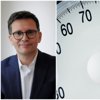Fritextsökning
Artiklar per år
Innehållstyper
-

Who pays for Rebecca Doe – and all of us?
Anna Törner on how easily we get used to the idea that healthcare is free - when it really is about how and who pays for it
-

Security flaw in Swedish breast cancer screening software – woman passed away
A lack of safeguard in Sectra's software led to a woman with breast cancer receiving an incorrect diagnosis. She later passed away. The software is used in 20 out of 21 regions in Sweden. It is also used in neighbouring Nordic countries. “Extremely serious,” says the Sectra CEO to Medtech Magazine.
-

Developing rapid diagnostics for sepsis – “Every hour counts”
Finding the right antibiotic in the right dose – with an ultra-fast analysis method. Gradientech's product solution is currently used in routine diagnostics at several hospitals in Europe – and the next target is the US market.
-

Health politician Lina Nordquist: ”I find it hard to be idle”
She is the pharmacist and researcher who grew tired of the breakthroughs that never materialised and knowledge that never seemed to reach patients, so she decided to make a change from within. Life Science Sweden meets Lina Nordquist, Member of Parliament for the Liberals and their spokesperson on healthcare policy, to have a conversation about reality, politics, and the need for writing.
-

Björn Arvidsson: ”We must raise our gaze to find the answers of the future”
A system approach isn't just about understanding complexity – it's about making better decisions. By seeing ourselves as part of larger systems, we can better anticipate the consequences of our actions, writes Björn Arvidsson in a column.
-

VGR pausar Millennium på obestämd tid
Under kaosartade former stoppades journalsystemet Millennium i höstas. Nu pausas införandet på obestämd tid, men Västra Götalandsregionen utesluter inte ett återinförande på längre sikt.
-

First preterm infants study – a vital step for Neola
After years of developing an advanced lung monitoring system, Neola Medical has received some delightful news: permission to start its first clinical study on preterm born infants.
-

Cosmic blir nytt journalsystem i Stockholm
Region Stockholm har valt journalsystemet Cosmic. Men oppositionen i regionen valde att avstå från att delta i beslutet.
-

Nästa generations fetmaläkemedel ska sätta ny standard
Inom ett par år kommer nästa generations fetmaläkemedel sannolikt vara ute på marknaden. Försök att råda bot på biverkningar som minskad muskelmassa är en förhoppning, men flera kandidater siktar mot att sätta en helt ny standard för vad behandlingen kan åstadkomma.
-

Utvecklar snabb diagnostik vid sepsis – ”Varje timme räknas”
Rätt antibiotika i rätt dos – och det med en ultrasnabb analysmetod. Gradientechs produktlösning används idag i rutindiagnostik på flera sjukhus i Europa – och nästa mål är USA-marknaden.
-

FDA approves first non-opioid pain reliever in over 20 years
For the first time in decades, a new type of acute pain medication that is not an opioid has been approved in the USA.
-

BD separerar affärsområdet Biosciences – fokuserar på medtech
BD slimmar portföljen och avyttrar affärsområdena bioscience och diagnostik. “Nya BD” ska bli ett helgjutet medicinteknikföretag.
-

Björn Arvidsson: ”Vi måste lyfta blicken för att hitta framtidens svar”
Vi måste lyfta blicken från våra egna specialområden och se de större sammanhangen. Först då kan vi utveckla lösningar som verkligen gör skillnad, skriver Björn Arvidsson i en krönika.
-

Marie Gårdmark: “What to expect from Trump’s second term?”
One may complain about the complex multinational system in EU, but it gives us some predictability that cannot be easily overturned by different member states political agendas, writes Marie Gårdmark in a column.
-

Konkurrenter blir gemensamma Crafoordvinnare – för upptäckt om autoimmun sjukdom
Christopher Goodnow, Austrualien, och David Nemazee, USA, vinner Crafoordpriset i polyartrit 2025 för upptäckten av mekanismer som förhindrar autoimmun sjukdom. ”Vi var vänligt sinnade konkurrenter som gjorde den här upptäckten på olika platser i världen”, säger Goodnow.
-

The business coach: “We need to learn from our mistakes”
The past year has been challenging for many biotech companies, with several comapanies facing financial stress and bankruptcy. To understand how entrepreneurs can navigate these tough times, Life Science Sweden spoke to Pia Keyser, a business coach at Umeå Biotech Incubator, who has worked with many companies in the industry.
-

Large study: The benefits and risks of obesity medications
Medications such as Ozempic can reduce the risk of a range of different diseases and health conditions but also increase the risk of others. This is according to a large American study where the connections between GLP-1 receptor agonists and the risk of a variety of health outcomes have been examined.
-

Regeringen: Ingen haverikommission efter Millennium
Regeringen kommer inte att tillsätta en haverikommission efter införandet av Millennium i Västra Götalandsregionen. Trots att skeendet var ett misslyckande som skadar förtroendet. Det meddelar digitaliseringsminister Erik Slottner (KD).
-

How the Foreign Office will promote Swedish life science exports
The broadness and innovative strength keep Swedish life science exports strong, but the protectionist tendencies in the world are worrying, says Camilla Mellander, Director General for Trade, in an interview.
-

GSK acquires oncology research company
GSK acquires the American biotechnology company Idrx for up to 1.15 billion dollars.
-

The future of healthcare in focus: ”Together, things happen”
In march, it’s once again time for Fokus Patient, an event for the industry where the patients’ perspective takes center stage. It’s a great way to spread knowledge in Sweden and around the world, according to the initiator Penilla Gunther
-

Life science trends 2025 – Part 1 obesity drugs
More obesity drugs are being launched this year following Novo Nordisk and Eli Lilly's previous successes with GLP-1 drugs. But the next big breakthrough in obesity has a different mechanism of action, writes Samuel Lagercrantz in the first article in a series of trend insights for 2025. Today: obesity.
-

New cell therapy raises hope for curing type 1 diabetes – "Never succeeded before"
For the first time, a patient with type 1 diabetes has undergone an islet transplantation using genetically modified insulin-producing cells that do not require immunosuppressive drugs. "A major immunological breakthrough," says Professor Per-Ola Carlsson, who leads the clinical study, to Life Science Sweden.